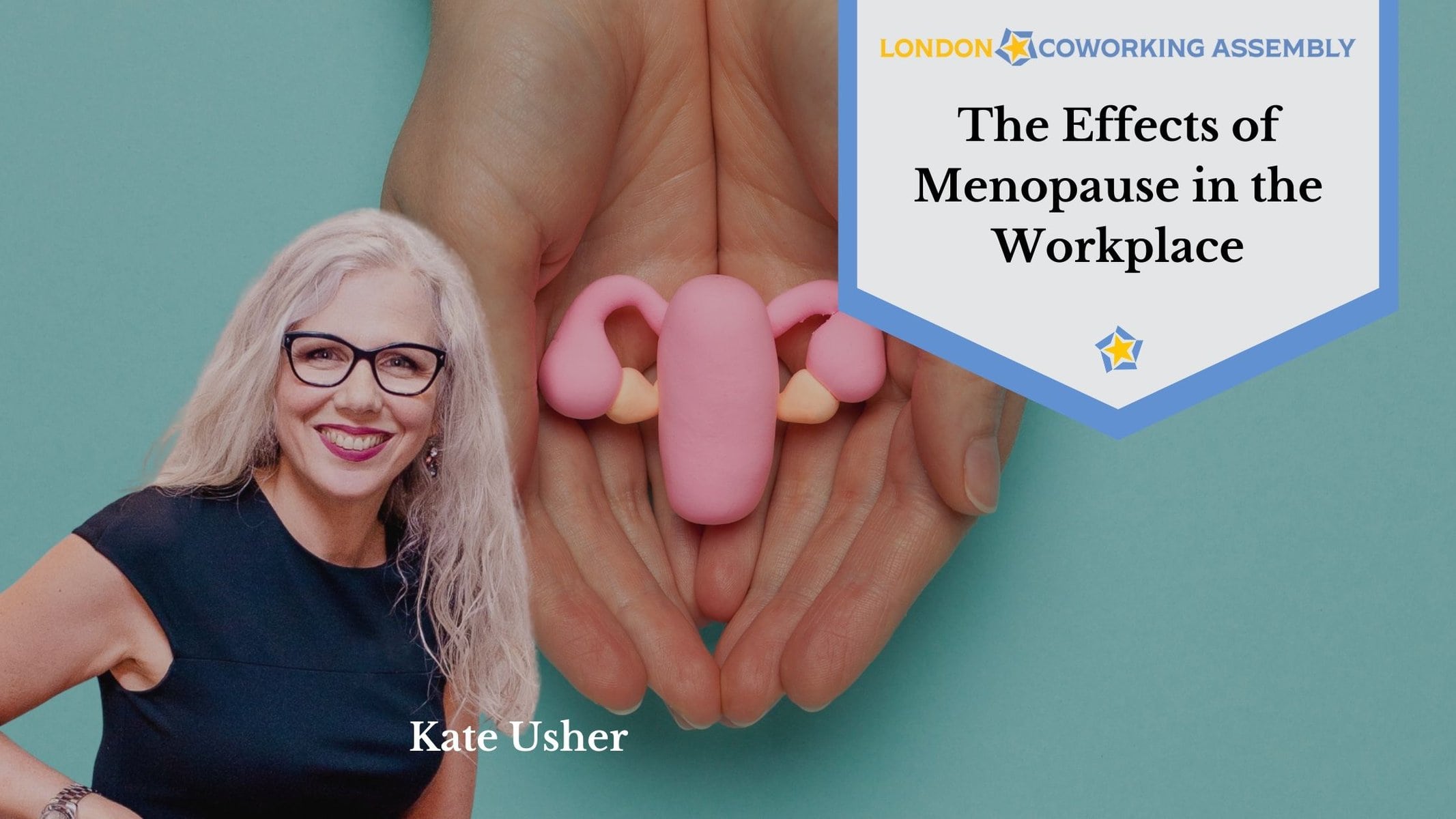Kate Usher, a coach and change strategist, for all things menopause and what we need to know about it in the workplace. Kate has more than 15 years of coaching experience and specialises in menopause together with equality, diversity, and inclusion.
She is a broadly recognised author on the effects of menopause in the workplace and you can read all about it in her book ‘Your Second Phase’.
Menopause has been the butt of jokes for centuries and this is probably due to so little understanding of what menopause is. Being classed in this stereotype is hurting opportunities for women in the workplace all over the world.
Industries need greater gender representation
“I’m known for talking about the uncomfortable things of menopause. That’s what I talk about all day, but what I really do is I create modern menopause conversations that enable people to easily talk about menopause and support those who are going through it.” Says Kate and how she would like to help women to ensure that they stay in their chosen careers, and that they achieve what they need to achieve, as that is really what she would like to be known for.
We need greater gender representation and balance at senior levels that encourages other women to step into industries and push for those senior management and executive roles.
Kate hosted an interactive web talk around menopause, and it was astounding for her as around 300 people, male and female, joined in to learn more around this topic. People were just blown away by the fact that someone was actually talking about it and were stepping in and supporting others and that shows the appetite for this subject out there.
We have a perception driven by every female character over the age of forty that we grew up with in sort of reruns from the sixties’ programs in the seventies’, eighties’ and nineties’. They were all portrayed as negative, unreliable and a bit crazy. They were unhappy people essentially and generally quite old looking. So, these negative stereotypes are part of everyday thinking and they kind of flash forward when somebody says menopause and that’s reinforced today.
The lack of studies of menopause
The average age for menopause is fifty-one years old, but this also depends on ethnicity. There’s very little research into the impact on non-white women in menopause. And we believe from some early studies in in America that black women experience a more severe menopause for longer, and normally go through menopause at earlier age of 49-years old.
What we have noticed is that because of the lack of studies and knowledge of women of colour, it stops us from coming forward and seeking the support that is available. This can be socially and culturally highly damaging.
Menopause in the workplace
Quite often in the work environment, men feel that is a women’s issue and that it is not something they need to concern themselves with. It just seems too complicated and scary or awkward for them to consider thinking about it.
But if you have a menopausal colleague, no matter what their age is, then those symptoms will be coming with them into the workplace because they can’t switch them off. So if you are noticing that your colleague is having a hard time and maybe you don’t know what the menopausal symptoms are, go and find out and be more be more empathetic.
It’s about opening up the opportunity to have these conversations and give support to women. Women don’t necessarily want to talk about it, but they do appreciate the empathy of someone making a pathway to them getting additional help no matter how small those things are.
So ask yourself, what is menopause?
And then talk about the challenges of having that conversation and how to structure it, how to move forward with that and how to feel as though you are making a positive impact. How are you giving those who are experiencing menopause the opportunity to speak about what it is within your groups and your coworking spaces.
Listen to Kate talk about Starting the conversation about menopause.

